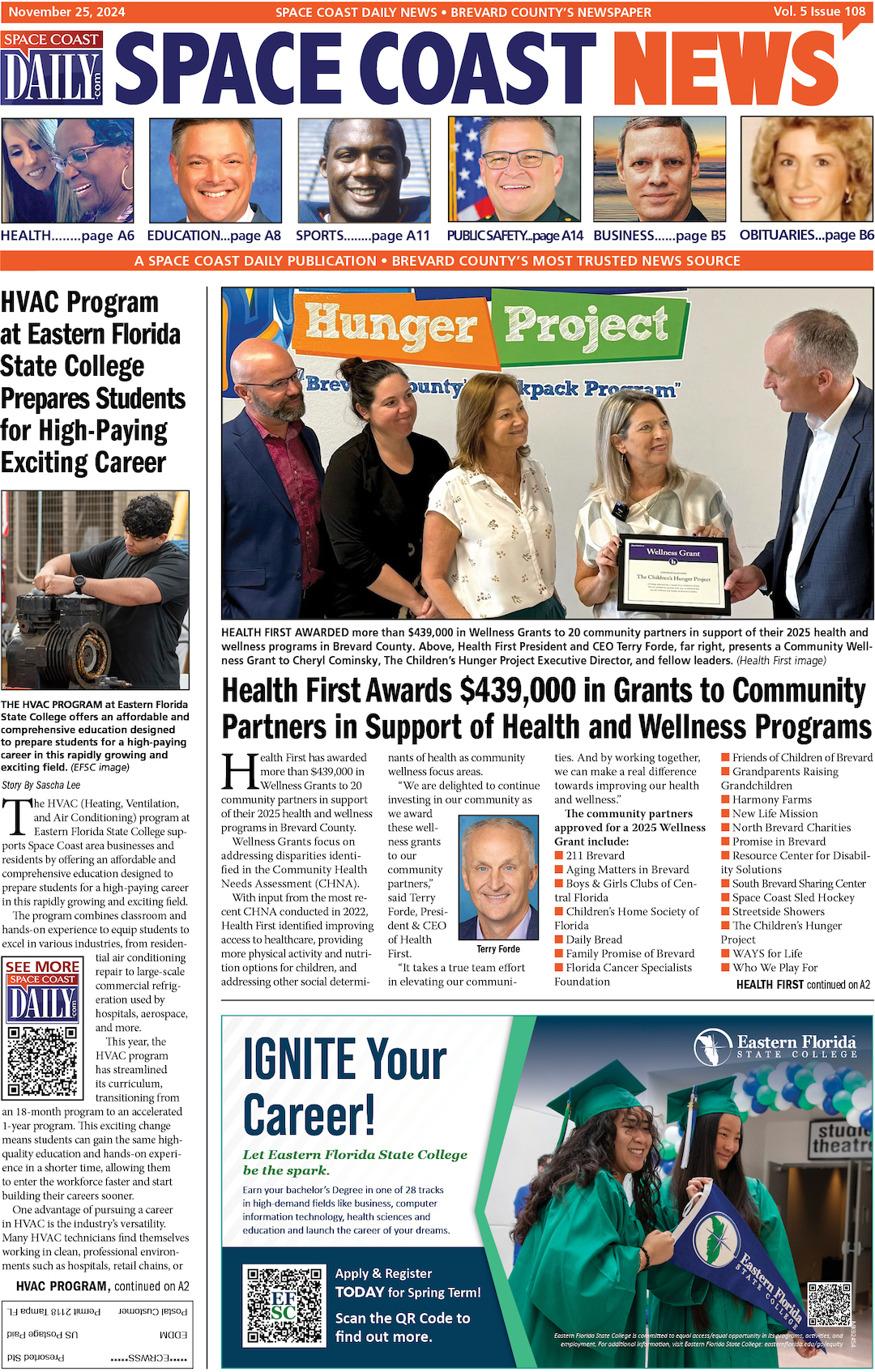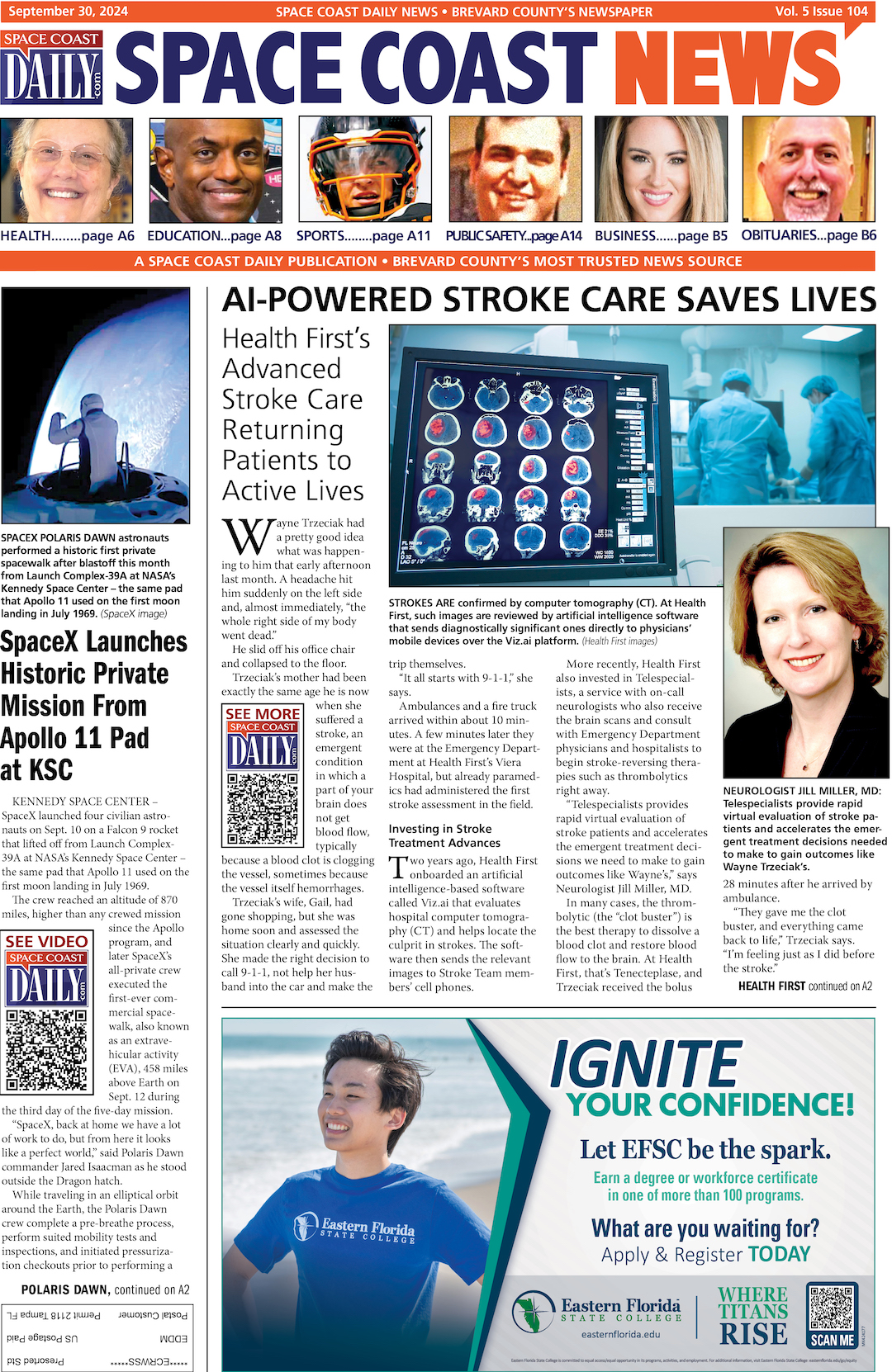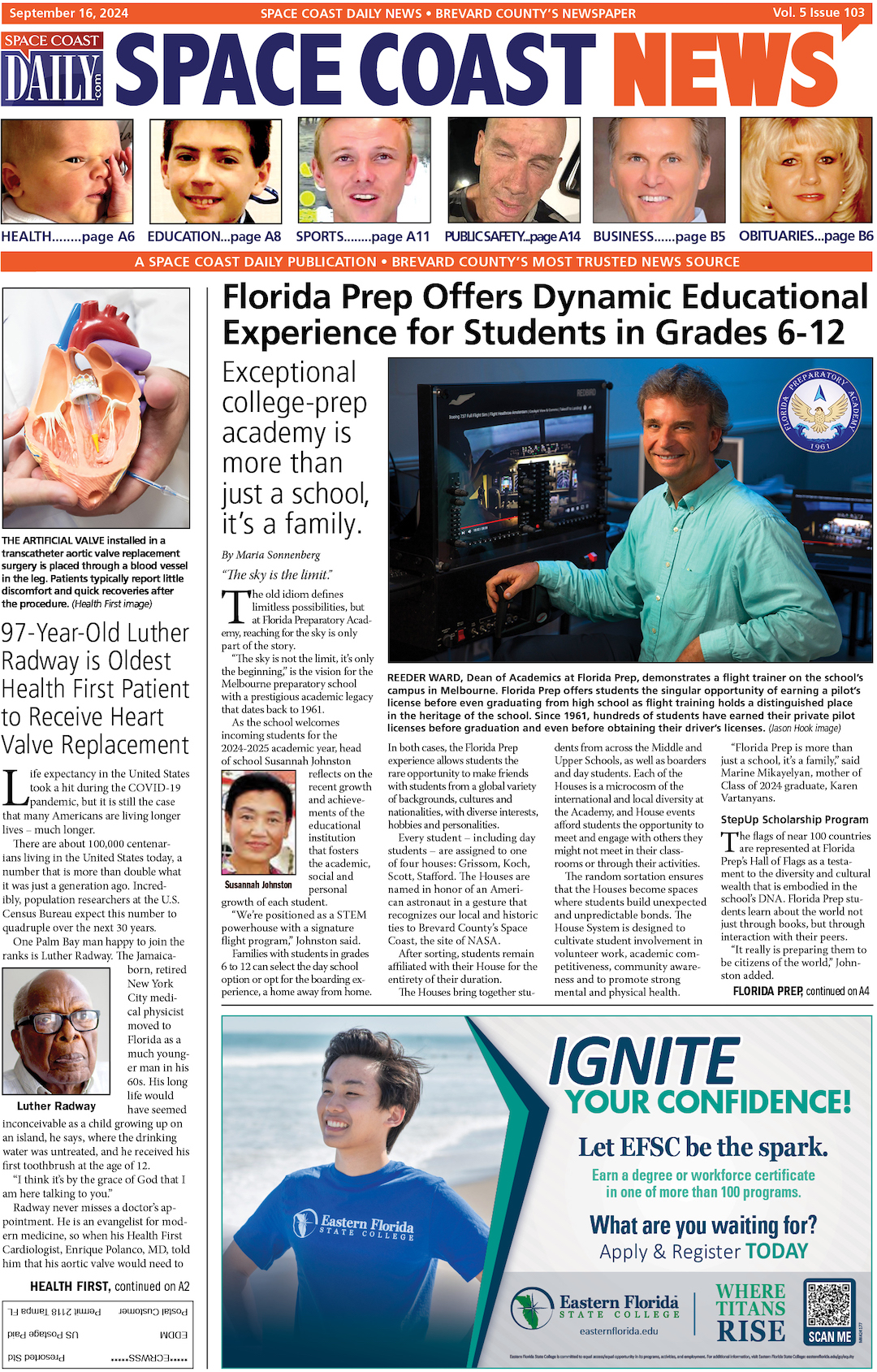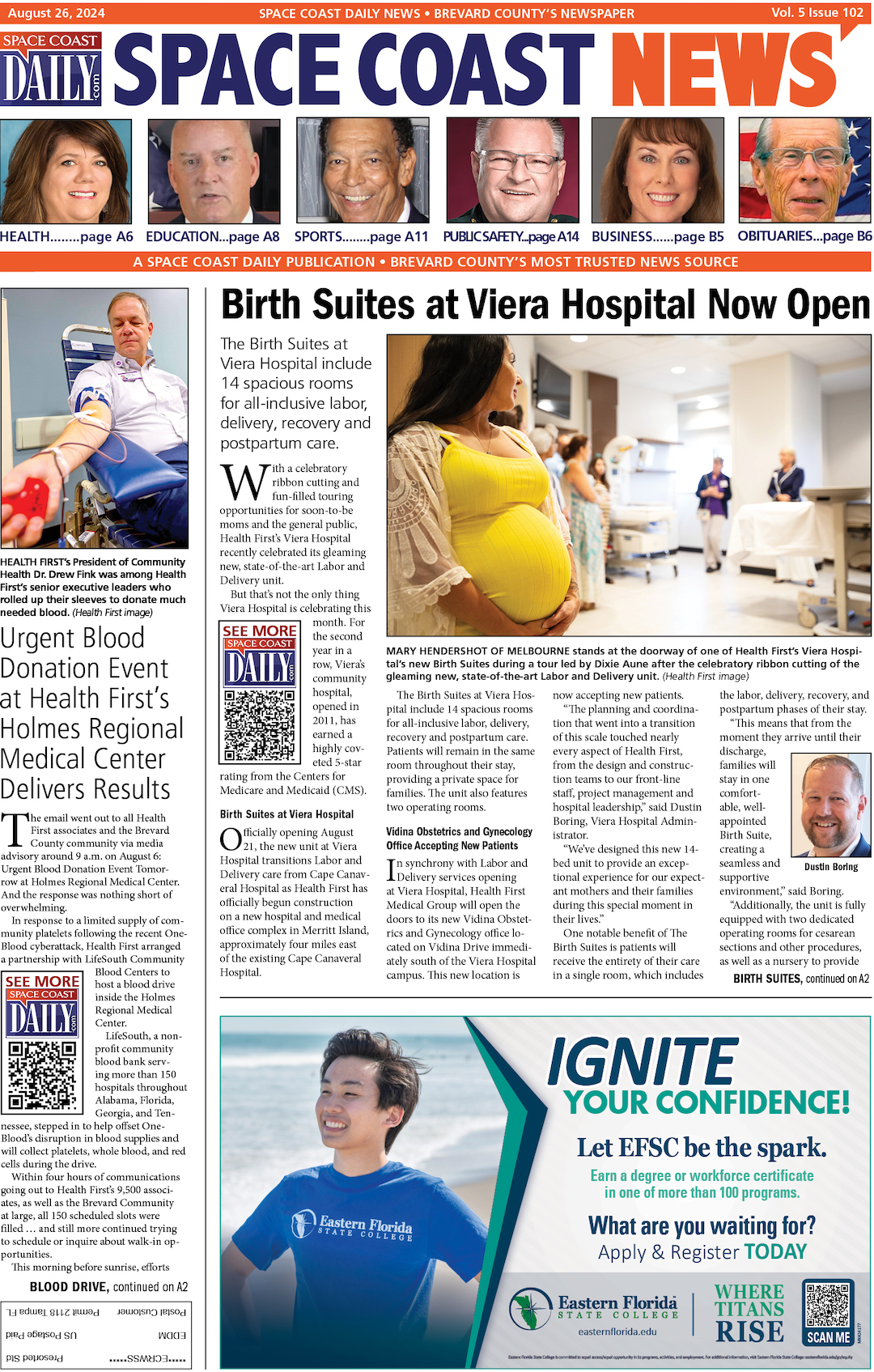8 Amazing Software Medical Devices Reshaping the Healthcare Industry In 2019
By Space Coast Daily // April 29, 2019
devices work by using wireless technology
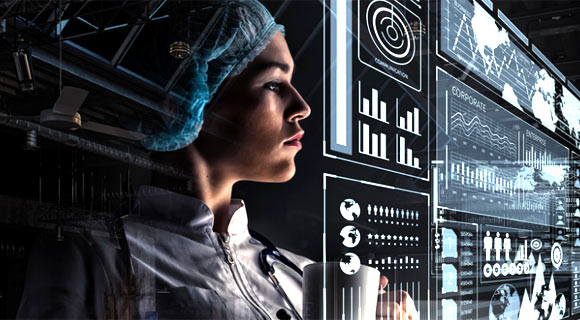
The digital transformation of healthcare has led to many developments that will contribute to reshaping the healthcare industry, but none have exploded faster than smart medical devices.
In fact, it’s thought that the global health and wellness device market, which smart medical devices fall under, will be worth $162 billion by 2024.
These devices work by using wireless technology in conjunction with the internet of things (IoT) to receive, store and analyze data.
Thanks to physical sensors, the device registers data from a user’s surroundings and then uses its computational capacity to store and analyze the information it has received.
This allows smart devices to deliver actionable advice that has been tailored to a specific user, or to perform automated actions, based on the input it has received.
While smart medical devices have a number of different uses in the healthcare industry in 2019, one of the most impactful is monitoring health conditions.
According to Orthogonal, wireless communication technologies are starting to play a crucial role in our society, as they increase independence and provide people with the freedom to easily share information across computers, tablets, smartphones, and other medical devices.
Using this technology, smart devices can help people monitor health conditions with inbuilt pedometers that measure steps or portable blood pressure monitors that tell patients when their blood pressure is reaching dangerous levels.
In addition to this, smart medical devices are also used to provide treatment.
A device can deliver medication to a user thanks to information analyzed by the IoT.
Take for instance the infusion pump. It can send medication to the body through a small tube when instructed to do so by the medical device it is connected to.
At the end of the day, the uses for smart medical devices are endless.
In time, as humans become more skilled in understanding how to reshape the healthcare industry, so the complexity of these devices will increase.
In this article, however, we will be focusing on some of the most amazing software driven medical devices and showing you what technology is already offering to the healthcare industry.
Tackling Complex Health Issues With New Smart Medical Devices
- Smart Continuous Glucose Monitor (CGMs)
These devices help diabetics to continuously monitor their blood glucose levels by taking readings at regular intervals. The process is simple. The device sends data from the readings to an app on an iPhone, Android or Apple Watch, making the information easily accessible for users, so that they can check their readings and identify trends without consulting with a doctor.
- Connected Inhalers
Created by Propeller Health, connected inhalers are sensors that attach to an inhaler or Bluetooth spirometer. Users can then install an app that allows them to identify trends, track causes and uses of rescue medication, and find out allergen forecasts in their area.
These reports can also be shared with a user’s doctor, which encourages medication adherence and provides clear indications about what may be going wrong if a patient’s health unexpectedly declines.
- Seizure Monitoring
Named one of the best healthcare startups to watch out for in 2019 by HealthcareWeekly, BioLert is a smartphone app targeted towards those who suffer from chronic seizures. Using a patented algorithm, the watch can recognize vital information that indicates a seizure is coming on.
It then notifies the user, their caretaker and designated medical professionals of the event. Information about seizure onset, seizures and any accompanying physical manifestations are also recorded so everyone can learn about the factors relating to an individual’s seizure. Anyone with a smartwatch can download this app, but there is a monthly fee for the service.
- Diabetes Infusion Pump
A diabetes infusion pump is a drug-device combination product that delivers insulin from the pump to your body through a thin tube called an Infusion set, replacing the need for frequent injections by delivering rapid insulin continuously 24 hours a day.
These devices are small and electronic, comparable to the size of your average smartphone, and can be discreetly hidden on clothing to make them virtually invisible to others.
- Fertility Tracker
Created by Concepta Plc, the myLotus hormone monitoring product helps women identify when their most fertile days are by measuring hormone levels and keeping track of changes over time.
The device consists of a measuring device and test strips that are inserted into it. This information is then transferred to their attached app, which displays and analyses the data and helps to form predictions of when it’s best to try for a baby.
- Implantable Defibrillators
Newpace and researchers from Na Homolce Hospital in Prague worked together to create a less invasive defibrillator device that can prevent sudden cardiac death. Unlike other defibrillators of its kind, this implantable string subcutaneous defibrillator (ISSD) doesn’t require a metal pulse generator pocket.
Instead, it operates using a string-shape device with no leads within the heart. This device has an average implantation time of 20 minutes, and can be connected to a smartphone.
- Medical Exam Kit
Tyto Care’s medical exam kit holds true telehealth capabilities by allowing parents, caretakers and individuals themselves to perform physical exams. The data collected from these devices, like otoscope photos, temperature readings, and heart rates can then be examined by a physician over a computer.
This device is so versatile that it even has special attachments, like a tongue depressor, that allows it to perform many of the same actions performed at an in-person doctors appointment.
- DUO Stethoscope With Inbuilt ECG
The Eko DUO, a combination of a stethoscope and an ECG device, works alongside a smartphone app that can be utilized on a phone or tablet device.
It allows a physician to simultaneously record heart sounds and single-lead ECG tracings at the point of care, making it easy to help diagnose heart failure and detect atrial fibrillation more efficiently.
If a second opinion is necessary, the data collected with this device can also be shared with other physicians by uploading the data to the patient’s electronic medical record.
The Future Looks Promising
The software-driven smart medical device industry may still be in its infancy, but there’s no doubt that we are at the development of something that is going to be extremely beneficial in the future.
In fact, Cisco expects that there will be more than 50 billion devices connected to the internet by 2023, and 30% of these devices will be used in the healthcare industry.
This suggests that the market still has a lot of growing room, which is something Technavio backs up. They expect the global connected devices market to grow by more than 9% CAGR by 2021.
Digital Authority Partners also reports that we’ll be seeing a rise in the amount of cost transparency apps and digital payment options within the healthcare industry. This is based on the current trend of consumers who demand better price transparency within the healthcare industry as a whole.
In the long term, the healthcare landscape will become more patient-focused.
In fact, one of the trends for future healthcare apps is finding the best ways for providing patients with a more convenient way to interact with healthcare services and monitor their health from remote locations.
Conclusion
The growing awareness of smart medical health devices is encouraging the fast development of the software-driven industry and is forcing companies to rethink the way they target and acquire customers within the industry.
With consumers demanding more control over their health, and devices that allow them to monitor things remotely, we are looking at a complete reshaping of the healthcare industry.
As healthcare facilities will become less important, the focus will shift from providing a cure, to finding ways to prevent health catastrophes.
This could transform the way we view healthcare in the not-so-distant future, and make smart health devices a staple in every home, improving the health of millions and alleviating the healthcare system from crippling under the pressure of emergency cases.
CLICK HERE FOR BREVARD COUNTY NEWS




